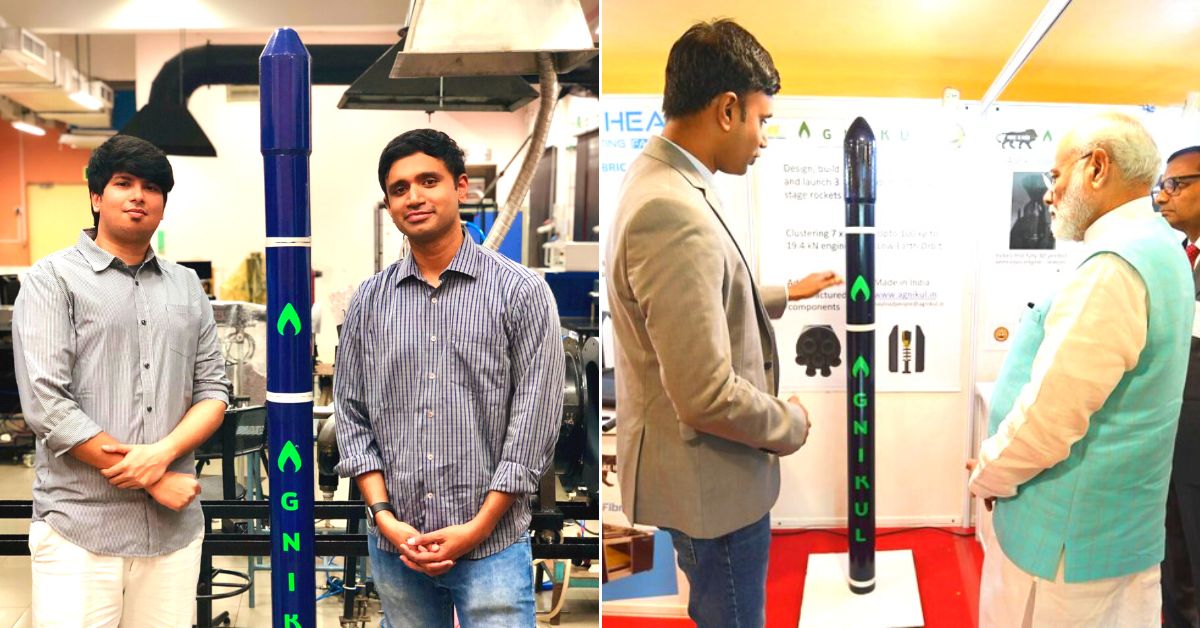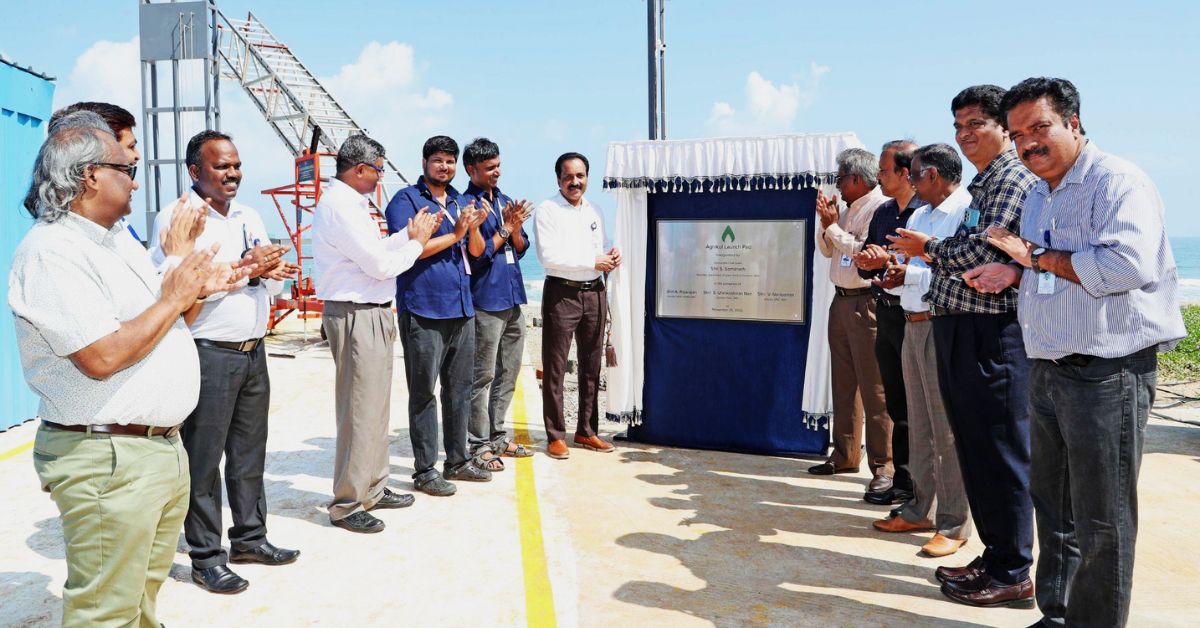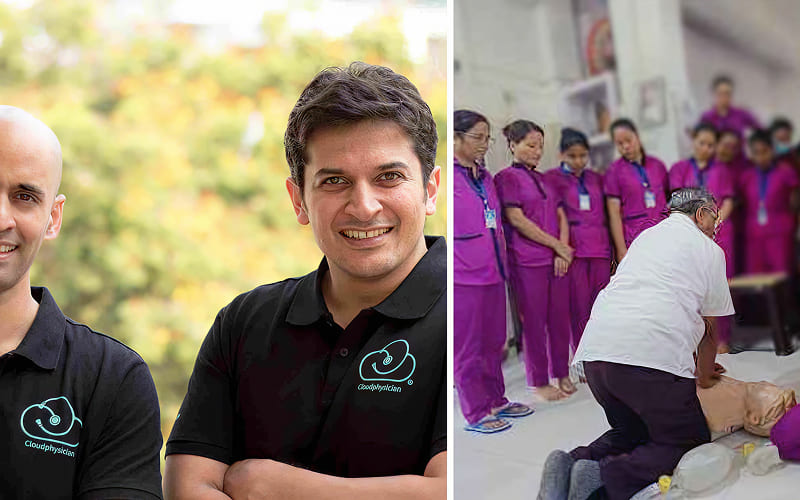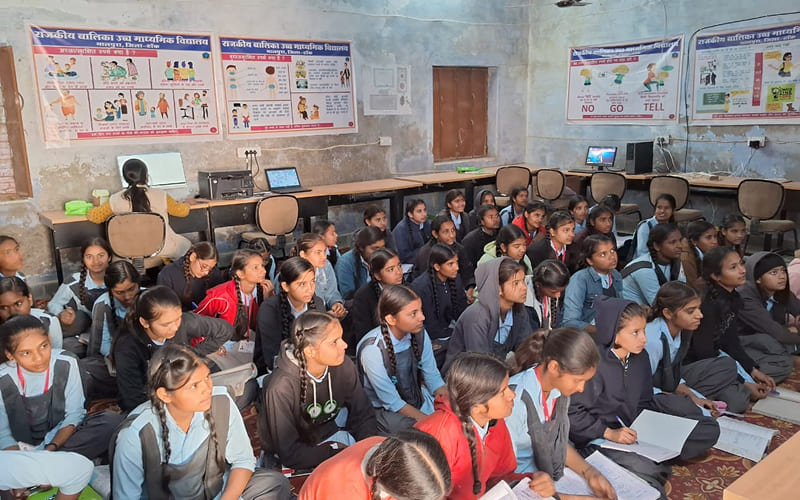
Agnikul’s 3D-Printed Rocket Redefines India’s Space Ambitions
Chennai-based Agnikul Cosmos is reshaping how India builds and launches rockets. From creating the country’s first single-piece 3D-printed rocket engines to setting up a privately operated launchpad at Sriharikota, the IIT Madras–incubated startup is making small satellite launches faster, cheaper, and more accessible—pushing India’s private space ambitions to the next level.
Updated on: 05 August 2025

Sector

Solution
Technology

State of Origin
Impact Metrics
World's largest
single-piece 3D-printed rocket engine made from Inconel.
India's first
private launchpad.
6x cost reduction
and rapid production of up to two engines per week.
As satellites get smaller, traditional rockets remain bulky and expensive. Agnikul’s solution is Agnibaan, a modular small rocket that can carry payloads between 30 kg and 300 kg into low Earth orbit. Its core innovation is a single-piece 3D-printed engine, eliminating the need for welding or assembly and drastically reducing human error.
Manufactured from Inconel, a heat-resistant alloy, these engines weigh just 11–12 kg and can be printed in a single shot. This approach cuts costs by six to seven times compared to conventional rockets, while enabling rapid production—up to two engines per week—at Agnikul’s AS9100D-certified Rocket Factory-1 at IIT Madras.

A breakthrough in propulsion technology
In 2025, Agnikul achieved another milestone by successfully test-firing India’s first electric motor-driven semi-cryogenic rocket engine. Additionally, it built the world’s largest single-piece 3D-printed rocket engine made from Inconel, a high performance superalloy known for its strength and heat resistance.
Unlike traditional engines that rely on turbopumps, Agnikul’s design uses electric motors for propellant circulation, enabling precise thrust control and faster response for complex missions.
This new engine retains the company’s hallmark 3D-printed design, with critical subsystems manufactured in-house. The next step is clustering multiple engines to power the first integrated flight of Agnibaan, a key step toward commercial operations.
India’s first private launchpad
Equally historic was Agnikul’s 2022 inauguration of the country’s first privately operated launchpad, built at Sriharikota with ISRO and IN-SPACe support. Comprising the Agnikul Launchpad (ALP) and Mission Control Center (AMCC), the facility integrates seamlessly with ISRO’s flight safety systems.
This milestone reflects progressive space policy reforms, enabling private players to build infrastructure once reserved for government agencies.
Agnikul’s innovations directly address a critical gap for satellite operators—long wait times and high rideshare costs. Agnibaan promises on-demand launches within two weeks, democratizing access for remote sensing, communications, and experimental manufacturing in orbit.
By lowering launch costs and timelines, Agnikul is unlocking new opportunities for research institutions, startups, and global satellite makers.
Catalyzing India’s new space economy

Agnikul was the first private space startup to sign an agreement with ISRO under the IN-SPACe initiative, signaling India’s shift toward a more collaborative space ecosystem. With $30–35 million in funding and a growing queue of global customers, the startup is poised to play a pivotal role in India’s emerging small satellite launch market.
Aligning with Atmanirbhar Bharat and Viksit Bharat@2047, Agnikul exemplifies how frontier technologies can drive self-reliance while expanding India’s footprint in the global space economy.
From 3D-printing engines in one shot to operating the country’s first private launchpad, Agnikul Cosmos is proving that India’s space race is no longer just about reaching orbit—it’s about redefining how the world gets there.
Share Your Story Today, Shape Viksit Bharat Tomorrow
Got an idea, innovation, or experience that's making a difference? Share your story now and ignite India's transformation because your voice can drive the future forward!
BUILD YOUR OWN
BUILD YOUR OWN
How can I implement this innovation effectively?
How is this innovation being adopted around the world?
Where else could this innovation make an impact?
Who has seen real results from using this innovation?
What insights do experts share about this innovation?
What policies support or influence this innovation?
How could this innovation evolve in the future?
Is this innovation accessible and inclusive for everyone?
How can I contribute to or participate in this innovation?
What resources can help me explore this innovation further?
If you would like to know more about this innovation, fill this form to contact the innovator.
Handpicked stories tailored just for you
Explore stories that inspire, inform, and ignite new ideas across tech, innovation, and real-world impact


Tele-ICU Technology Revolutionizes Critical Care Access Across India
Bengaluru-based Cloudphysician is transforming ICU care with its Tele-ICU platform, connecting hospitals to remote intensive care experts 24/7. Co-founded by...
Read More

